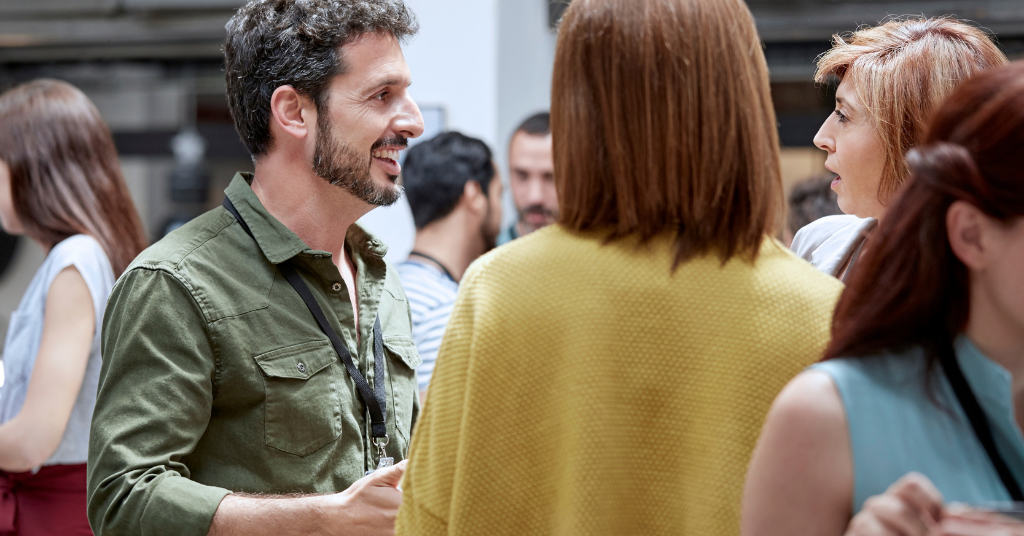
Tips for troubleshooting hearing technology at school
March 24, 2019
When I’ve Used My Hearing Loss to My Advantage
March 28, 2019Cas Mastropaolo: Future hard of hearing football star

Cas Mastropaolo’s dream is to play football in the NFL.
With recent recognition by CNN as a Positive Athlete, he’s well on the way. His journey is all the more remarkable because of what he’s overcome. A former child slave in Haiti, Mastropaolo is now a talented hard of hearing football player.
Born in Haiti
As Mastropaolo wrote in an essay that he shared with HearingLikeMe, he doesn’t know his actual birthday or birth year, but knows he was born somewhere near Port-au-Prince, Haiti, between 1998 and 2000. He lived in the garbage dump with his older brother, where they scavenged for food. He contracted tuberculosis and survived typhus, measles, and malnutrition.
Somewhere around the age of three or four, he was taken by human traffickers and sold as a kitchen slave. He has a brand on his arm that forever marks the name of his “owner.” Child slaves in Haiti are called restaveks, and the practice is actually legal.
“Fortunately for me, a missionary bought me out of slavery for $60 and took me to an orphanage where I lived for the next three years,” Mastropaolo wrote. His mother Michlene died in the cholera epidemic following the Haitian earthquake of 2010, and his father died in Hurricane Matthew in 2016. “I do not know if my Haitian siblings are alive,” Mastropaolo wrote. “I carry them all in my heart.”
While at the orphanage, he found out that a family in Ohio wanted to adopt him. It then took two years of paperwork, waiting, and worrying before he was able to come to the United States.
Adoption
Laura and Ken Mastropaolo have two older biological daughters. They wanted to grow their family, and decided upon adoption of an older child because they had been blessed with two biological kids. They chose international adoption and selected Haiti, because it’s the poorest country in our hemisphere and so close to our shores. “We were very open to adopting a child with some special needs,” Laura Mastropaolo says. “There was a whole list of challenges we had to go through and indicate whether we would be willing to adopt a child with those challenges.”
Adjustment
Adjusting to a new country was challenging. Mastropaolo knew no English and had an extremely limited Creole vocabulary. Flushing toilets, wearing shoes, snow, unlimited food, and other things were all new to him.
“He had adult-like life skills, but no child skills,” his mom recalls. “He did not know how to play at all.”
“He had adult-like life skills, but no child skills.”
Mastropaolo also had to have many health procedures and medication for tuberculosis and parasites. Because he hadn’t had any schooling, he had a lot of academic catching up to do as well. It took months of intensive one-on-one work with him to begin to adjust.
Hearing Loss
Several years after Mastropaolo came to the United States, his parents found out about his hearing loss. “We always joke that we should win parents of the year for missing it!” his mom says. “It was hard because we knew he did not know English and he was extremely adept at lip reading.”
Mastropaolo failed the rudimentary hearing test at his kindergarten screening. At first, they thought it was because he was so fascinated by the headphones that he didn’t pay attention to the actual test. But when they took him to the ENT, the doctor said there was a huge amount of scar tissue in his ears. Mastropaolo was then referred to an audiologist, who used more sophisticated hearing tests and determined that he had moderate to severe hearing loss in both ears – particularly in the higher registers.
“We do not know definitively if he was born with hearing issues or if the various untreated illnesses caused it,” Laura Mastropaolo explains.
Several weeks after his diagnosis, Mastropaolo got his first pair of hearing aids, which he just wears mostly in school or for special occasions, like the doctor, a college visit, or a quiet place. He can hear a lot, unless it’s a soft voice.
Football
When Mastropaolo discovered American football in fifth grade, everything changed, he wrote in his essay. “I found a passion!” he wrote. “Football translated into my whole life. Now I knew I had to strive even harder in school, in the community, and on the practice field to catch up and expand my horizons!” His dream is to play in the NFL because he wants to give back to Haiti.
Read more: Hear Haiti: The Future of Haiti
“His dream is to play in the NFL because he wants to give back to Haiti.”
Mastropaolo has committed to playing for Gallaudet University this coming fall. He’s never been able to wear his aids while playing football, which is one reason why he and his family are especially excited. “Finally, he will have professors and coaches who ‘get it!’” his mom says.
His mom says Mastropaolo has grown and matured very well since his humble beginnings. He’s an extremely loyal person and the hardest worker she knows. School has never come easily to him, so he works 10 times harder than everyone else. “Fortunately, Cas was and still is a VERY positive person!” she says.
As Mastropaolo himself said in his essay, “The most important goals I have accomplished in my life so far are to survive and thrive!”
Did you know about these deaf NFL players?




